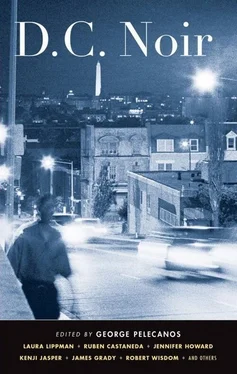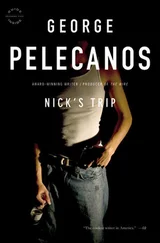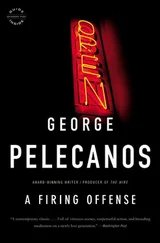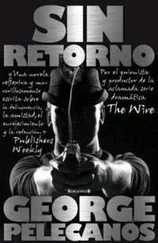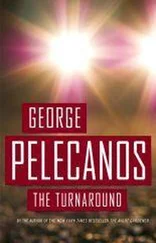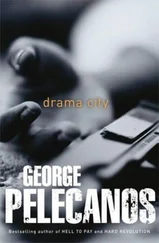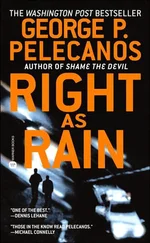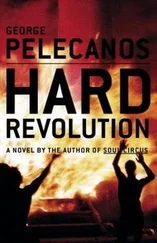He had no language for that kind of story.
Three cops came, two uniforms with a plainclothes officer who picked around in the ruins, trying to protect his shoes. The uniforms glanced at the scene from the door and went back to sit in their cruiser at the curb out front.
“Any idea of the damages?” the officer asked.
“Not yet,” Liebmann said. “I need a few days. I have to inventory.”
“Right,” the officer said. “I understand.” He slipped, but caught himself against a shelf. “Damn. This is some kind of mess. Who would’ve done this?”
Liebmann was sweeping glass with an industrial push-broom. He said nothing.
The officer looked around with the expression of a man who needed to move on to some other part of his day. “No enemies, huh? No big fights with anybody? Upset customer?”
“No,” Liebmann said.
The officer shrugged. “Vandalism. It’s getting worse. We’re seeing more of it all the time. Tough to connect anybody to these things, though. Not unless you walk in on them red-handed.”
The insurance adjuster came a few hours later. Older than the cop, world weary, wearing black-frame eyeglasses and a tired off-blue suit. By the time he arrived Liebmann had swept paths through the glass. The floor was sugared with congealed liquor and the insurance man’s wing tips stuck and sucked to the floor as he walked. He had a clip-board. He looked closer and harder at the damage than the police officer had, made notes as he moved through the wreckage, then left his business card with Liebmann, mum-bling something about how sorry he was.
From time to time Liebmann’s sister would appear and speak in his dreams. He had never seen her again after that morning in their bedroom in the family apartment in Berlin. Outside on the street the Nazis had separated the males and females — he watched his mother and his sister led away. An officer was saying over a bullhorn that everybody was being relocated for their own safety, away from Berlin and the Allied bombing runs, and he watched his sister in her little brown shoes, holding his mother’s hand, walking off. Just before he lost sight of her, she turned back and smiled and waved.
Dreaming, Liebmann heard her voice lift in the open happiness of a child, speaking in a language he did not understand, that seemed more like bells heard at a great distance than any sort of words he might recognize. As she spoke, her tiny white face hung suspended in the opalescent air of his vision.
Neither the police officer nor the insurance adjuster noticed the bullet holes in the outside wall. Liebmann found them when he came to the store the next morning. They were there if somebody cared to look. But he knew nobody would.
Reports were filed. Liebmann hired a clean-up crew, and inventoried, and replaced the losses, and filed his receipts with the insurance company. He sold the pistol to a dealer at a gun show at the Armory for twenty-five dollars, and about six weeks later a check arrived from the insurance company for the damages. Business went on as usual. Thrived as usual. People still came in every day to get the boxes they wanted for storage, for shipping, for whatever they needed. A few of the regular customers offered consolation. Sorry about what happened, Jacob. Maybe it’s time to get out of here. Move up the road to Wheaton.
Liebmann nodded. Maybe, he said. Maybe I need to think about that.
East of the sun
by Jennifer Howard
Hill East, S.E.
In that neighborhood, they said, you learned fast where trouble came from. All you had to do was keep your sense of direction and walk the other way. Hill East was still a little rough around the edges but most of the people wanted to be friendly. Stay away from the hot spots and say hello to everybody: That was the rule.
A month after we moved to Potomac Avenue we knew the places to avoid — mostly north and east, like the intersection of 17th and Independence, where the crackheads hung out, and the New Dragon, an all-night takeout joint over at 13th and C that sold liquor to go. You didn’t want to mess with the kind of people who patronized that joint. They didn’t go there for the food.
The Dragon was where the local pusher known as the Wheelchair Bandit did business. Having a disability didn’t make a person any more law-abiding than anybody else, apparently. Instead of a motorized chair, the Bandit had an old pit bull — I know it’s a cliché but it’s the truth — who used to pull him around when he wasn’t staked out for customers just outside the restaurant. Some people on the neighborhood listserv said you could hear the jangle of his keys — he carried at least fifty of them on a belt chain — and the panting of his dog before you saw the man himself. If you heard those sounds, they said, you’d better get yourself clear.
Nobody knew whether the food was any good at the New Dragon or whether in actual fact they even served any. Nobody moved to Hill East for the food anyway. Good pizza, decent Mexican, KFC — that pretty much covered the range. Thai takeout, if you were an office type with a little more disposable cash than the longtime residents, the federal workers and postmen and steady jobbers who’d bought their places forty years ago and couldn’t believe what those old houses — nothing fancy, just solid 1920s brick numbers with modest front porches and envelopes of land front and back — went for these days. Couldn’t believe their property taxes, either. They cashed in or they stayed put until they couldn’t afford to stay put any longer. I used to wonder, once in a while, where they went when they left.
Drugs and real estate: two good lines of work to be in on the Hill if you weren’t a Republican or a lobbyist, or maybe even if you were. We didn’t care for the Republicans or the dealers, but none of that made trouble, not for us. It was just life in a town lousy with people who had too much money — the folks looking to buy up anything they could get their hands on — and even lousier with people who didn’t have enough to do anything at all. Not everybody could be a winner.
Overall I couldn’t complain about how things were going. Baseball had come back to town after thirty-five years — the Nationals were even on a streak, the winning kind — and after years paying good dough to bad landlords, we had a house of our own.
We felt lucky, finding that house. Lucky to have a front porch and a little bit of land to call our own, lucky to have a bedroom for each kid — Dani, who was almost four, and her baby brother Jack — when a lot of people we knew had theirs double-bunking. Especially if they lived in the older row houses to the west, over in the lockdown zone around the Capitol and the Supreme Court where the Homeland Security folks concentrated their loving attention. For the most part they left Hill East alone. There was nobody fancy here to protect, no essential governmental personnel, unless you counted the famous residents of Congressional Cemetery two blocks over. John Philip Sousa and J. Edgar Hoover were good neighbors.
I couldn’t say that of everybody. In the mornings, on my way to the Metro, I got in the habit of picking up the Styrofoam containers and soda cans thrown out of car windows by the people who blew down Potomac Avenue. You could find all kinds of things in the bushes along that strip — condoms (used), CDs (unplayable), every type of wrapping known to the fast-food industry.
The weirdest thing I found was a baby doll the color of an old copper penny. I say I found it but in fact it was Dani who did, on one of the aimless stroller expeditions she and the baby and I used to take down the alley behind the house when we had time to kill before dinner. The backyards of our block were as diverse as the residents. A couple had been shrubbed and landscaped until they looked like pages out of House and Garden . Others, like ours, were crammed full of kiddie gear, plastic slides, and sandboxes shaped like enormous frogs and ladybugs. A few, including William and Ida’s next door, had evolved over decades from outdoor storage to junkyards where unwanted objects went to die: broken-down jalopies, odd pieces of wood from home-renovation projects abandoned halfway through, steel meat smokers that looked like mini-submarines.
Читать дальше
